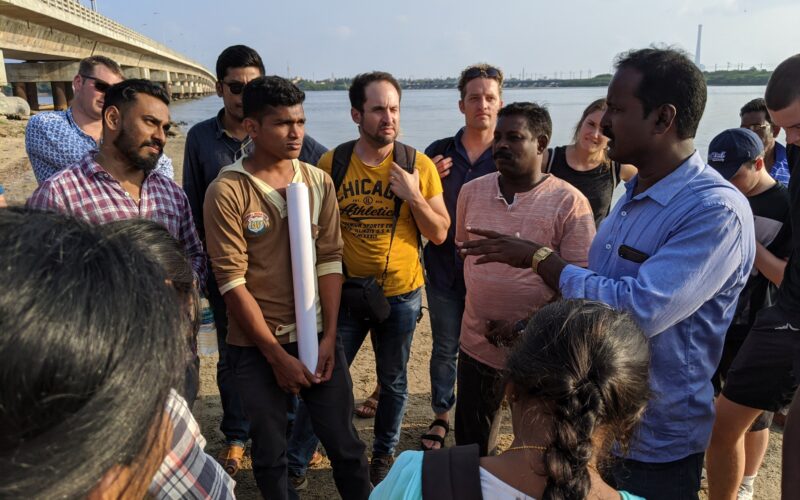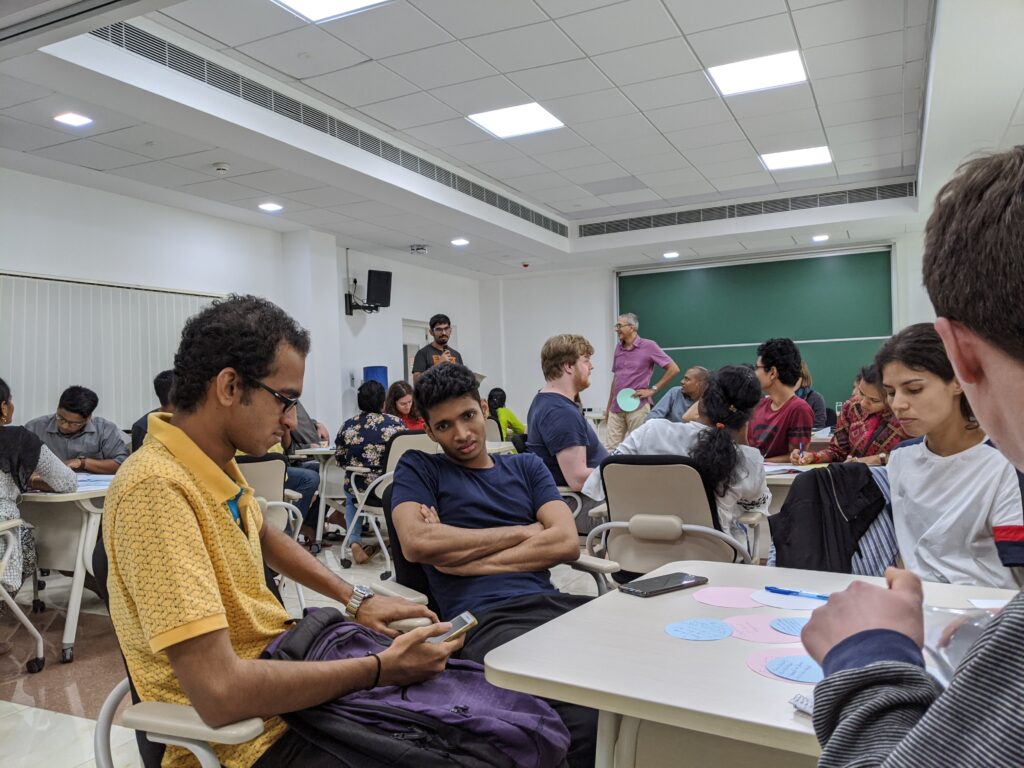Rahul G. Rajkarnikar, CAU Kiel
My name is Rahul. I am from Kathmandu, Nepal. I am a Master’s student in Environmental Management at CAU Kiel, and I was a participant for the IGCS Winter School 2020 at IIT Madras. I had spent two weeks in Chennai traveling, learning, exploring new ideas, and meeting incredibly talented people. This is the story of my experience.
The lecture series integrated multidisciplinary views of urbanization and land questions to define sustainability both within the city premises and its periphery. It stressed the importance of addressing the rapidly blurring boundaries between cities, small towns, and rural areas, presenting a new terminology called periurbanisation.
The Winter School took me from Chennai’s lively streets to the serenity of Ennore, where the kind hearts of the locals keep the region warm. I was introduced to the South Indian architecture’s greatness, the taste of their legendary cuisine, and the marvels of the landscape it holds. There is a unique sense of wonder to witness sunrises from the ocean, as if gods underneath were bestowing us their gifts every morning.
IGCS showed me that the pressing environmental issues are hidden in plain sight, behind what we perceive as ‘every-day normalcy.’
Sustainability
The Winter School started with an important question: “Who gets to define what is sustainability?”
During the school, Dr. Chella notably stated that the term ‘Sustainable Development’ is not a fact, but rather a value. And it is imperative to recognize how communities define their value. Therein lies the challenge with the concept. Sustainability is more opinionated than quantifiable. Science alone cannot define it.
And, this, in turn, leads us to more questions-
“What are we ought to do then?”
“Is sustainability even possible?”
“Should our current lifestyle compromise life in the future?” or,
“Should we turn a blind eye to the needs of the current generation for the sake of the future?”
“How do we prioritize someone’s need over another?”
For me, this was a significant shift in perception from a belief in the existing theories and frameworks to lead the sustainability movement to a grounded reality. Science tends to take a back seat in the real world. Environment is a delicate machine whose routine operations are easily affected by external and often social factors.
Hence, perhaps, the most important question to solve sustainability issues could be simplified‒
“Why can’t we just get along?”
Seminar Structure
The school introduced us to technological tools and social-scientific frameworks that allowed us to assess the ongoing environmental conflicts and predict future risks in Chennai.
Every working day was essentially categorized into two segments. The first half was for the interdisciplinary lectures on sustainability delivered by environmental specialists from both Indian and German institutes. The latter half was then dedicated to “Action learning’ workshops that focused on project development based on theoretical learning from the sessions earlier. For this purpose, participants were divided into groups containing at least 5 members. At the end of the school, each group was required to present their respective projects’ findings.
Key Learnings
The seminars’ education was highly encouraging, primarily through testimonies of individuals who have dedicated their lives to environmental causes. Their experiences were thought-provoking and added new dimensions of possible future challenges to consider in this field.
The seminars’ key highlights made me wary of our unpredictable and complex relationship with the environment. Conventional regulation measures have often led to unprecedented consequences. I believe this case reinforces Yuval Noah Harari’s quote from his book ‘21 Lessons for the 21st Century:’
“Humans were always far better at inventing tools than using them wisely.”
Another crucial takeaway point from the school was the importance of grassroots level participation in any environmental movement. There needs to be a great deal of trust between different sustainability actors at various levels to ensure that environmental policies have their desired outcome.
There is excellent potential to incentivize people with opportunities to improve their own living standards that also benefit the environment. Hence, I would like to continue in this direction by trying to find ways that answer the question:
“How do we institutionalize the local responsibility movement so that it encompasses a larger section of the polarized community?”
Looking Back
The overall Winter School experience was incredible and overwhelmingly unique. I was exposed to a completely different world. There is simply something majestic about sharing a glance with a stranger on the streets, recognizing that this will be our only interaction, possibly in this lifetime. Yet, in those brief moments, they told me a story about their life in this unique part of the world.
I came to Chennai alone. But I left making a lot of friends and memories worth a lifetime.



